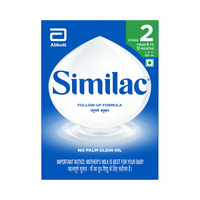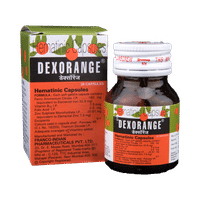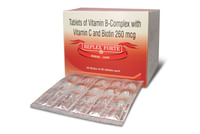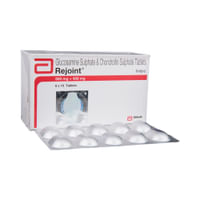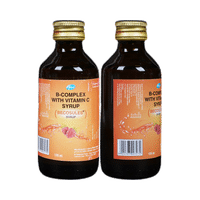Ambrolite St 100 mg/30 mg/2 mg Tablet

food interaction for Ambrolite St
alcohol interaction for Ambrolite St
pregnancy interaction for Ambrolite St
lactation interaction for Ambrolite St
food
alcohol
pregnancy
lactation
Ambrolite St 100 mg/30 mg/2 mg Tablet is to be taken empty stomach.
Take this medicine 1 hour before or 2 hours after food. You can take it with food if stomach upset occurs.
Avoid Ambrolite St 100 mg/30 mg/2 mg Tablet with caffeine and chocolate as well as food containing caffeine and chocolate such as tea leaves, cocoa beans.
Take this medicine 1 hour before or 2 hours after food. You can take it with food if stomach upset occurs.
Avoid Ambrolite St 100 mg/30 mg/2 mg Tablet with caffeine and chocolate as well as food containing caffeine and chocolate such as tea leaves, cocoa beans.
CAUTION
It is unsafe to consume alcohol with Ambrolite St 100 mg/30 mg/2 mg Tablet.
UNSAFE
Ambrolite St 100 mg/30 mg/2 mg Tablet may be unsafe to use during pregnancy. Although there are limited studies in humans, animal studies have shown harmful effects on the developing baby. Your doctor will weigh the benefits and any potential risks before prescribing it to you. Please consult your doctor.
CONSULT YOUR DOCTOR
Information regarding the use of Ambrolite St 100 mg/30 mg/2 mg Tablet during breastfeeding is not available. Please consult your doctor.
CONSULT YOUR DOCTOR
SALT INFORMATION FOR Ambrolite St
Theophylline(100mg)
Uses
Theophylline is used in the treatment and prevention of chronic obstructive pulmonary disease.
How it works
Theophylline is a bronchodilator. It works by relaxing the muscles of the airways and widens airways. This makes breathing easier.
Common side effects
Nausea, Vomiting, Headache, Restlessness, Insomnia (difficulty in sleeping), Diarrhea, Irritability, Skeletal muscle tremors, Diuresis, Behavioral changes, Seizure
Ambroxol(30mg)
Uses
Ambroxol is used in the treatment of Respiratory tract disorders associated with viscid mucus.
How it works
Ambroxol is a mucolytic medication. It thins and loosens mucus (phlegm) in the nose, windpipe and lungs making it easier to cough out.
Common side effects
Nausea, Vomiting, Upset stomach
Salbutamol(2mg)
Uses
Salbutamol is used in the treatment of chronic obstructive pulmonary disease.
How it works
Salbutamol is a bronchodilator. It works by relaxing the muscles in the airways and widens airways. This makes breathing easier.
Common side effects
Tremors, Headache, Palpitations, Dizziness, Nervousness, Muscle cramp, Respiratory tract infection, Throat irritation, Arrhythmia (irregular heartbeats), Cough, Tachycardia, Nausea, Decreased potassium level in blood, Weakness, Irritability, Drowsiness, Flushing (sense of warmth in the face, ears, neck and trunk), Difficulty in urination, Increased glucose level in blood, Myocardial ischemia, Pulmonary edema, Hypersensitivity, Peripheral vasodilation, Akathisia (inability to stay still)
SUBSTITUTES FOR Ambrolite St
4 Substitutes
4 Substitutes
Sorted By
 Rs. 21.26save 55% more per Tablet
Rs. 21.26save 55% more per Tablet Rs. 18save 62% more per Tablet
Rs. 18save 62% more per Tablet Rs. 16save 66% more per Tablet
Rs. 16save 66% more per Tablet Rs. 20save 58% more per Tablet
Rs. 20save 58% more per Tablet
Expert advice FOR Ambrolite St
- You have been prescribed Theophylline for prevention and treatment of asthma and chronic obstructive pulmonary disease (COPD).
- It should be taken at the same time each day, preferably in the evening after food.
- It does not work right away and should not be used to relieve sudden breathing problems. Always keep a fast-acting (rescue) inhaler with you.
- Your doctor may take regular blood test to monitor potassium level and the level of this medicine in your body.
- Notify your doctor if you have ever been diagnosed with kidney, liver or heart disease, or if you have a smoking history. Your dose may need to be adjusted.
- Do not discontinue use without consulting your doctor, even if you feel better.
Frequently asked questions FOR Ambrolite St
Theophylline
Q. How quickly does Theophylline work?
Theophylline starts acting quickly and you may notice improvement in symptoms within about half an hour of taking it. However, the medicine may take a little longer about 4-8 hours to show full effect. Consult your doctor if there is no considerable improvement in your symptoms.
Q. What foods to avoid while taking Theophylline?
While on Theophylline you should avoid foods rich in caffeine like tea, cocoa, coffee, and chocolate. These foods can increase side effects associated with Theophylline. In addition to that, you should avoid alcohol and tobacco while on Theophylline. Discuss with your doctor if you are not sure or have any concerns regarding food restriction.
Q. How should Theophylline be taken?
Take the medicine exactly as prescribed by your doctor. Usually, it is prescribed to be taken twice a day. Take the tablets with a full glass of water at least 1 hour before or 2 hours after a meal. Do not crush or chew the tablets. The capsules can be taken whole or opened and the contents mixed with soft food and swallowed without chewing.
Ambroxol
Q. Is Ambroxol good for dry cough?
No. Ambroxol is more effective in the treatment of productive cough associated with thickened mucus and poor mucus clearance
Q. Does Ambroxol make you sleepy?
No, Ambroxol is not known to make you sleepy.
Salbutamol
Q. What would happen if I take higher than the recommended dose of Salbutamol?
Taking a higher than the recommended dose of Salbutamol may cause seizures, chest pain, nervousness, headache, dry mouth, nausea, dizziness and lack of energy. High doses of Salbutamol may also cause fast, irregular or pounding heartbeat, uncontrollable shaking of any part of the body, and difficulty falling asleep or staying asleep. In any such case, seek immediate medical attention.
Q. Is it safe to take Salbutamol if I have heart disease?
Yes, Salbutamol is considered safe, but its use depends on the severity of your heart problem. If you experience chest pain or any other symptom of worsening heart disease while taking Salbutamol, seek immediate medical advice.
Q. Being a diabetic, what should I remember while taking Salbutamol?
Salbutamol may cause blood sugar levels to rise. Therefore, your doctor may adjust your dose of insulin or antidiabetic medicines. Keep a regular check on your blood glucose levels and do not miss any appointments. Consult your doctor if you experience a sudden rise in blood sugar levels.














